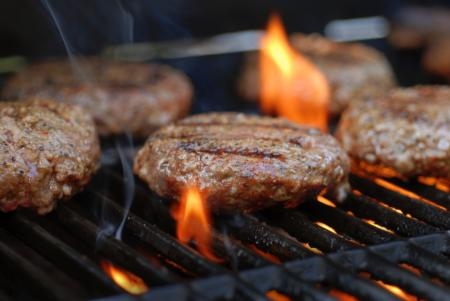Scientists target E. coli from farm to fork
The University of California, Davis, is participating in a large-scale research effort aimed at preventing potentially fatal illnesses linked to E. coli bacteria.
The U.S. Department of Agriculture is funding the $25 million, coast-to-coast project, to which UC Davis is providing expertise in livestock health, foodborne disease and consumer food marketing.
The project, announced Jan. 23 by the USDA, aims to reduce the occurrence of and public health risks associated with Shiga toxin-producing E. coli. The research effort is led by the University of Nebraska, Lincoln.
UC Davis researchers collaborating in the project include James Cullor, a professor in the School of Veterinary Medicine; Christine Bruhn, a food science marketing specialist and director of the Center for Consumer Research; and Terry Lehenbauer, director, and Sharif Aly, assistant professor, both of the Veterinary Medicine Teaching and Research Center in Tulare.
Cullor and his colleagues in the veterinary school's Dairy Food Safety Laboratory -- in Davis and Tulare -- will conduct research aimed at reducing the microbial counts on cattle hides during processing, looking for ecologically responsible methods for enhancing food safety. They also will test radiofrequency technologies, which use electrical currents oscillating at specific frequencies to inactivate E. coli on beef carcasses during processing.
Bruhn will collaborate with North Carolina State University and Kansas State University to reduce health risks associated with undercooked hamburgers. The researchers will encourage television food programs to include safe food-handling practices and messages.
In addition, Bruhn will work with health care professionals to raise the number of food-handling messages directed toward consumers who are at increased risk for foodborne illness, especially children and people with diabetes. She also will investigate consumer interest in the use of irradiation or high-pressure technologies to enhance the safety of ground meat.
Lehenbauer, Aly and their colleagues at the Veterinary Medicine Teaching and Research Center will participate in animal research needed for understanding the epidemiology and ecology of non-Shiga toxin-producing E. coli, after information from preliminary studies is used to develop the scientific protocols for these animal-sampling projects. The research team will focus on dairy cattle, including male Holstein cattle that are being raised for beef production
Other participants are the University of Delaware, New Mexico State University, Texas A&M, Virginia Tech, the University of Arkansas, the USDA's Agricultural Research Service, and a consortium of government, academic and industry scientists and food safety professionals.

